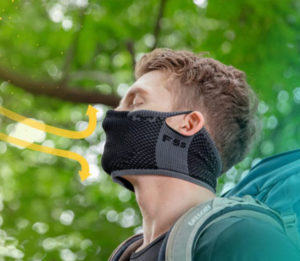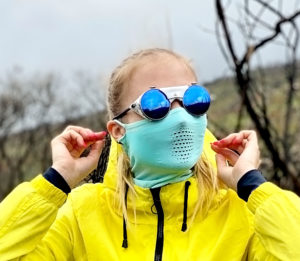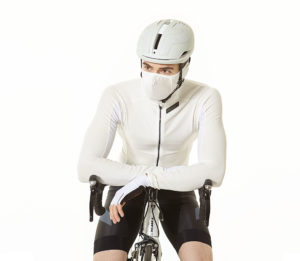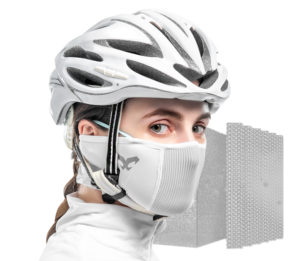Natural remedy for allergies: Relief that you might be missing
There is nothing quite like the great outdoors in spring, and there is nothing quite like the hit that this beautiful season can inflict on the human body. As inspiring as nature may be in full bloom, pollen allergy is an all too familiar enemy of many, including athletes. As with everything in life, there is bad news and good news here; yes, pollen could definitely jeopardize or ruin your sports goals during allergy season, but there are ways to protect yourself and your performance from it apart from medication.
What Are Pollen Allergies?
Pollen allergy—sometimes commonly referred to as “hay fever,” “allergic rhinitis,” or as “seasonal allergic rhinitis” by experts—is an allergic reaction to the pollen produced by plants and carried around by the wind. With one in five people being affected by it at some point in their life, it is most likely you either face it yourself, or at the very least have encountered it through family, friends, or peers. In Western countries, between 10% and 30% of people are affected.
Hay fever usually appears with allergy symptoms such as:
- Itching in your nose, roof of your mouth, throat, and eyes
- Sneezing
- Stuffy nose (congestion)
- Runny nose
- Tearing eyes
- Dark circles under the eyes
If these—especially a combination of them—sound familiar, particularly during pollen season then you know the culprit behind them. Now, while many of these symptoms are annoying, allergic rhinitis itself can also cause a variety of other issues that can range from significant hindrances to significant dangers.
For one, those who are allergic to pollen are also prone to allergic conjunctivitis (eye allergy). But it is also theorized that upper respiratory inflammation can lead to lower respiratory issues as well. According to Yale Medicine allergist Florence Ida Hsu, MD, “You’ll find people with allergies getting recurrent sinus infections, and both can lead to respiratory symptoms, asthma, and bronchitis.”
While there is a lot we still do not know about allergies, we do know that seasonal allergic rhinitis “… is often hereditary as to whether or not we develop allergies, which means it can be passed down through genes from parents to their children.” We also know that climate change is making them worse in the long-term. It is therefore always advisable to consult with your physician if you think or feel you may be affected.
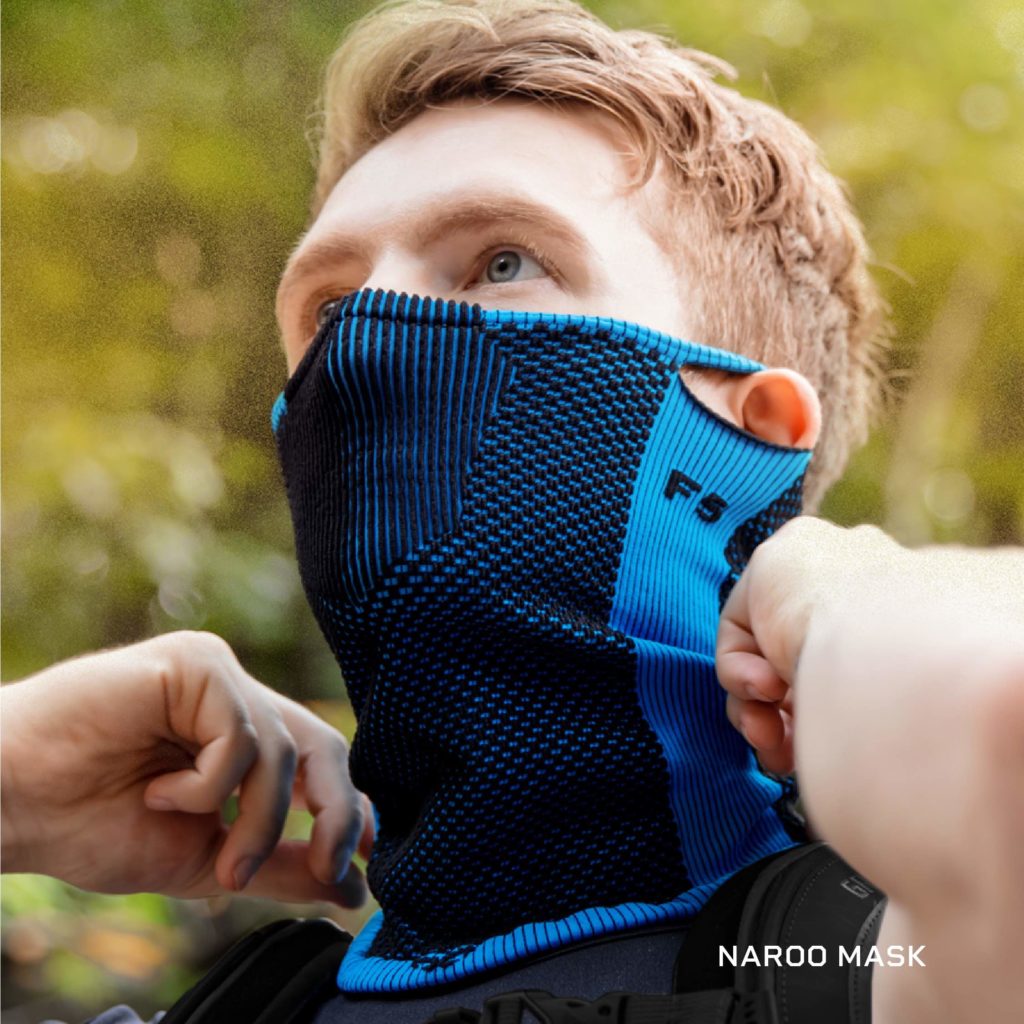
Most common natural remedies and techniques for allergies relief
Reduce your exposure to allergy triggers
In other words, stay at home, but as an athlete can you stay at home all season? In other words, stay at home, but as an athlete can you stay at home all season? It is recommended that you stay indoors during the peak hours when symptoms are most likely to occur and exercise later in the day, around sunset. During this time, the amount of spores scattered is low and the wind is light, so there will be no irritants flying into your eyes, nose, or mouth. It is also effective to choose a grass-free area for exercise to avoid stirring up spores.
Clearing the sinuses
Rinsing the nasal passages with saline solution (nasal rinse) is a quick, inexpensive, and effective way to relieve nasal congestion. It directly washes mucus and allergens out of the nose. Saline solution can be purchased ready-made or in a kit and added to water. If using a kit or homemade saline solution, use bottled water to reduce the risk of infection.
Alternative Treatments
Many natural remedies have been used to treat hay fever symptoms. Treatments that may improve symptoms include extracts of the shrub Butterbur, Spirulina (a type of dried algae), and other herbal medicines. Due to the limited number of clinical trials designed, there is insufficient evidence to demonstrate the safety and efficacy of these therapies. Acupuncture has shown limited benefit potential, but research results are mixed.
How Does Pollen Affect Us As Outdoor Lovers?
According to several studies, allergic rhinitis is more common in athletes than previously thought, with endurance athletes in particular having a high prevalence of it (44% of athletes). When you breathe harder and longer—which is common when exercising or competing as an athlete—you inhale a larger amount of allergens and irritants over a longer period of time.
According to Katelaris et al., 2000, allergic rhinitis impairs physical performance in professional athletes by affecting sleep, decreasing the ability to concentrate or reducing physical fitness. The same study also concluded that athletes are more prone to asthma. In the survey of 214 athletes representing 12 Olympic sports, 21% reported having experienced asthma.
All is not bleak, however. If you are now wondering “Can I exercise with seasonal allergies?” The answer is absolutely, YES. You simply have to exercise more cautious than others. There are many ways to reduce the health risks and comfort issues brought by pollen allergy. The tricky part is choosing—and balancing—between prevention and treatment.
As Medical News Today states, “medical treatments, home remedies, and changes in some lifestyle habits can help ease symptoms of pollen allergy.” At the same time, it’s impossible to be completely free of them through treatment alone. It is necessary for you to also consider how to avoid exposure to these allergens in the first place. Staying indoors and fortifying your home environment does help, but an athlete needs that safety and comfort level on the go.
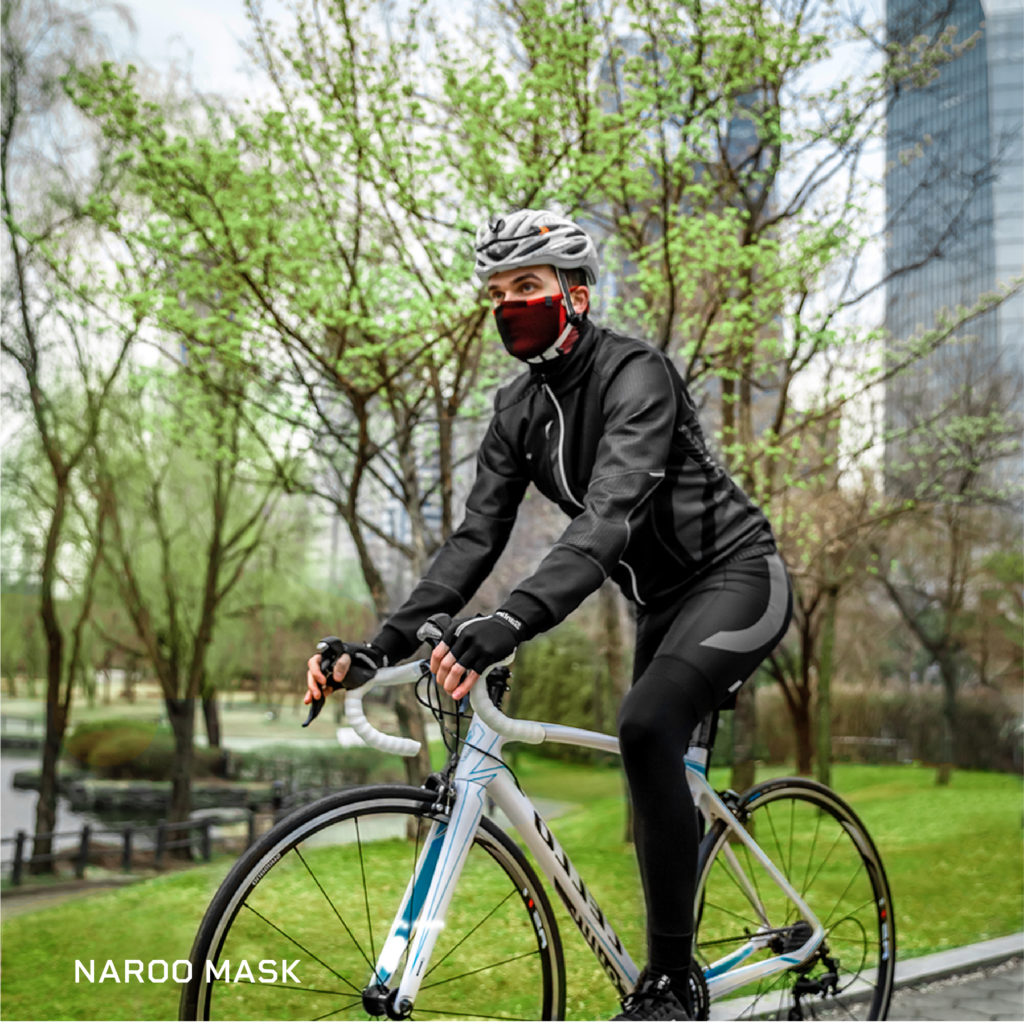
Natural remedy for allergies: Wear your face mask for relief
So if you need a face covering to tackle pollen head on, what is the best allergy mask to go for? Well, for one, any reduction in exposure is better than full exposure. According to a study by the Nippon Medical School in Tokyo, Japan, standard non-woven fabric surgical facemasks and glasses with side guard protection can help to a degree, but they cannot go up against wind speed and direction.
N95 respirators do a better job at filtering pollen particles out, but they are some of the least comfortable, least breathable to exercise or compete with. So with pollen particle sizes typically ranging from 9μm (microns) to 200μm, how does one go about keeping them out without resorting to solutions which will hinder their athletic performance?
Natural remedy for allergies relief that you might missed: pollen sports masks.
We Got You Covered
At NAROO we understand that the mechanisms of keeping you safe and at the top of your game as a hobbyist or athlete are multifaceted and complex. With that in mind we have utilized science, research, and innovation to bring you certified pollen-stopping sports masks held to the highest industry standards, such as the NAROO F Series. F Series masks filter out particles as small as 1.7μm, keeping even the tiniest specs of pollen out in the wild, great as a natural remedy for allergies.
So next time you dread those outdoor activities during high pollen count, remember that you can always grab your NAROO mask and enjoy that fresh spring air.
“These aren’t just face masks. They’re breathing solutions with testing and technology behind them.” — MENAFN- GetNews
“(The NAROO F-Series) are easy-breathing and filter out environmental agents that cause breathing difficulties or trigger allergy.” — Allergy UK
“With NAROO sports masks, athletes with mild to severe allergic reactions can train outside and go on outdoor adventures even during the pollen season.” — Nadezhda Pavlova, Pedalnorth.com

